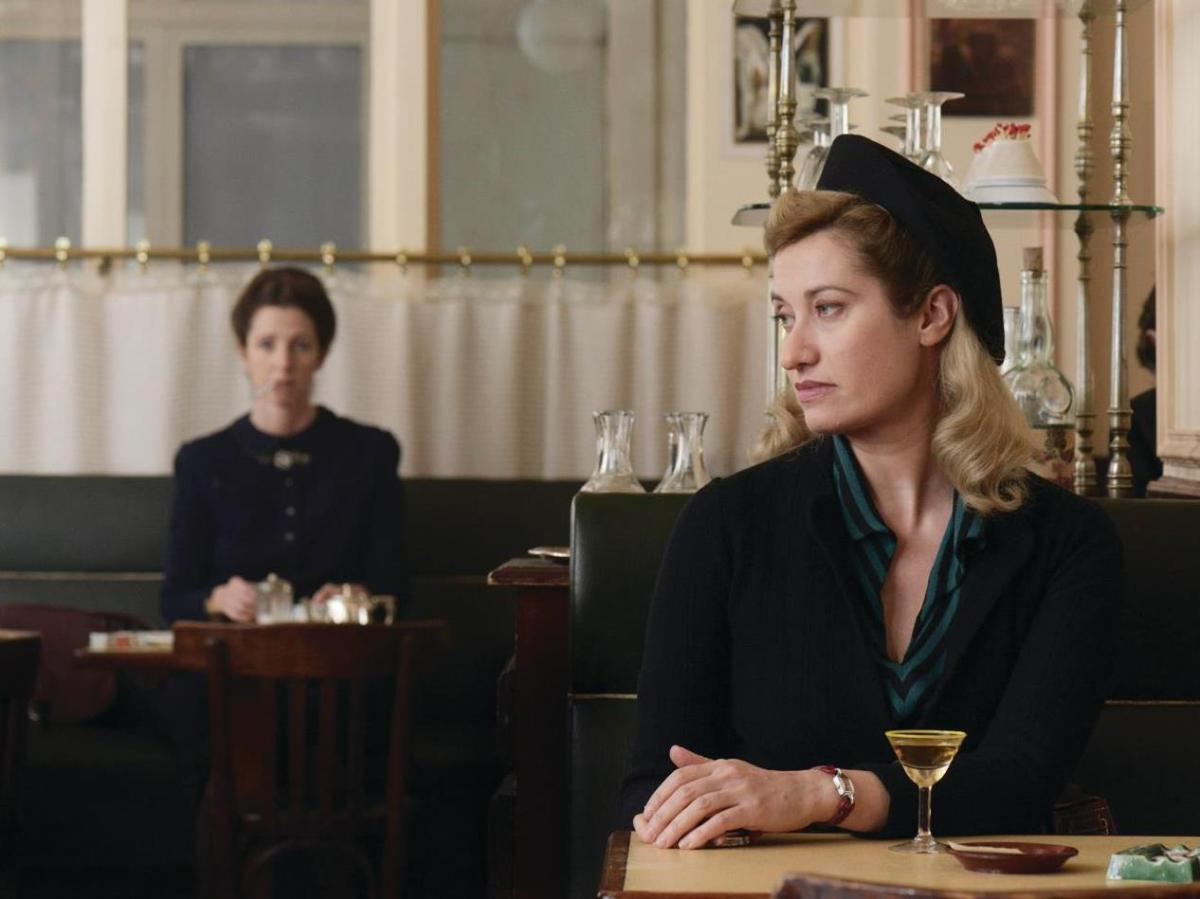Image: supplied
A biopic about a tortured artist who triumphs over her many challenges can fall into the hole of being so self-indulgent it relies on production design and beautiful costumes to cover up the vapidness. Martin Provost thankfully manages to steer Violette, a biopic of French writer Violette Leduc, away from this disastrous chasm. He tells Leduc’s story by capturing her ache for love and acceptance without overindulging in the tortured artist trope.
Violette focuses on various chapters of Leduc’s life as she creates her masterpieces In the Prison of her Skin, Ravages and The Bastard. Provost explores her complicated mentorship with the enchanting feminist writer Simone de Beauvoir (Sandrine Kiberlain) while grappling with her bastard status, a burden that leaves her longing to be wanted and accepted by everyone and anyone. Emmanuelle Devos projects a tenderness as Violette Leduc and layers it with curiosity and mild frenzy, creating a sense of endearment, which is foiled with Kiberlain’s poised and reserved de Beauvoir.
While Leduc’s relationship with de Beauvoir is complicated, at times her adoration for de Beauvoir mirrors a school girl obsession. Enamoured by de Beauvoir’s She Came to Stay, Leduc stalks de Beauvoir back to her home, leaving flowers at her door. Once she musters up the courage to talk to de Beauvoir, she awkwardly thrusts the manuscript for In the Prison of her Skin into de Beauvoir’s hands. While de Beauvoir sees Leduc’s potential as not only a writer but as a gateway to female expression, Leduc misconstrues de Beauvoir’s charity and belief in her writing as an act of desire. Despite rejections from de Beauvoir, Leduc still wants to please and impress her mentor and heeds de Beauvoir’s advice to channel her neuroses and anguish through her pen. As de Beauvoir’s success heightens with The Second Sex and The Mandarins, Leduc feels resentment towards her mentor, bitter about her poverty and her own lack of success despite glowing reviews from the literary elite.
Provost chops up the film into chapters and throws in a handful of funny lines to break up the pace. Literary fans will enjoy the subtle jokes about Albert Camus and Jean-Paul Sartre, who are mentioned but are not seen in the film. With the exception of Catherine Hiegel, who plays Leduc’s mother Berthe, the performances of the supporting cast feels restrained and stiff. This could be a directorial decision on Provost’s part to make Leduc stand out as more than just de Beauvoir’s protege amongst her celebrated contemporaries. Regardless, Devos’ performance is powerful and heartbreaking.
What’s refreshing about Violette is Provost doesn’t allow Leduc to become another under appreciated creative genius waiting to be discovered and loved by the world. Instead, he places significance on Leduc’s unfaltering hard work and ability to pick herself up from her failures and rejections to improve. It is this persistence, not sheer genius or talent, that makes Leduc’s story stand out.
Rating: 3 stars out of 5
Violette
Director: Martin Provost
Belgium, France, 2013, 139 mins
Melbourne Queer Film Festival
March 19 – 30
http://www.mqff.com.au/
Actors:
Director:
Format:
Country:
Release:





